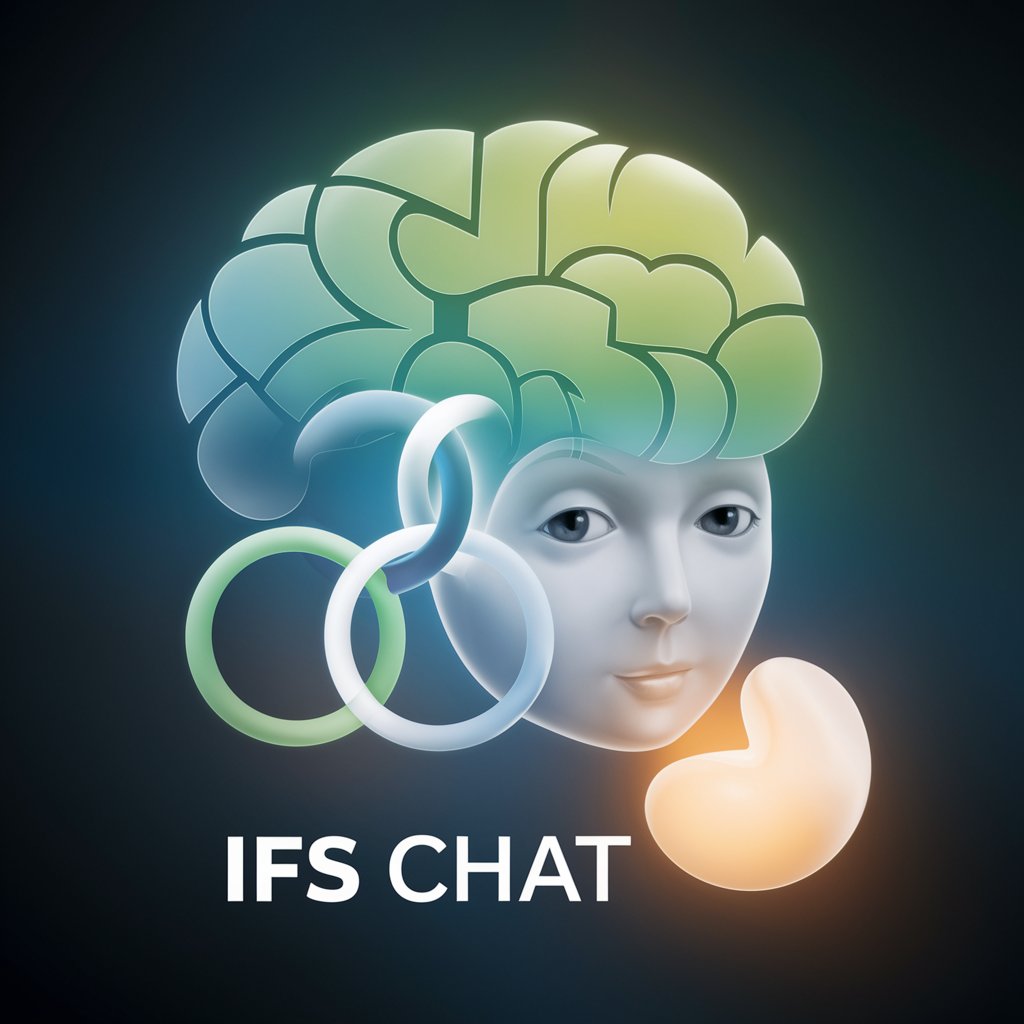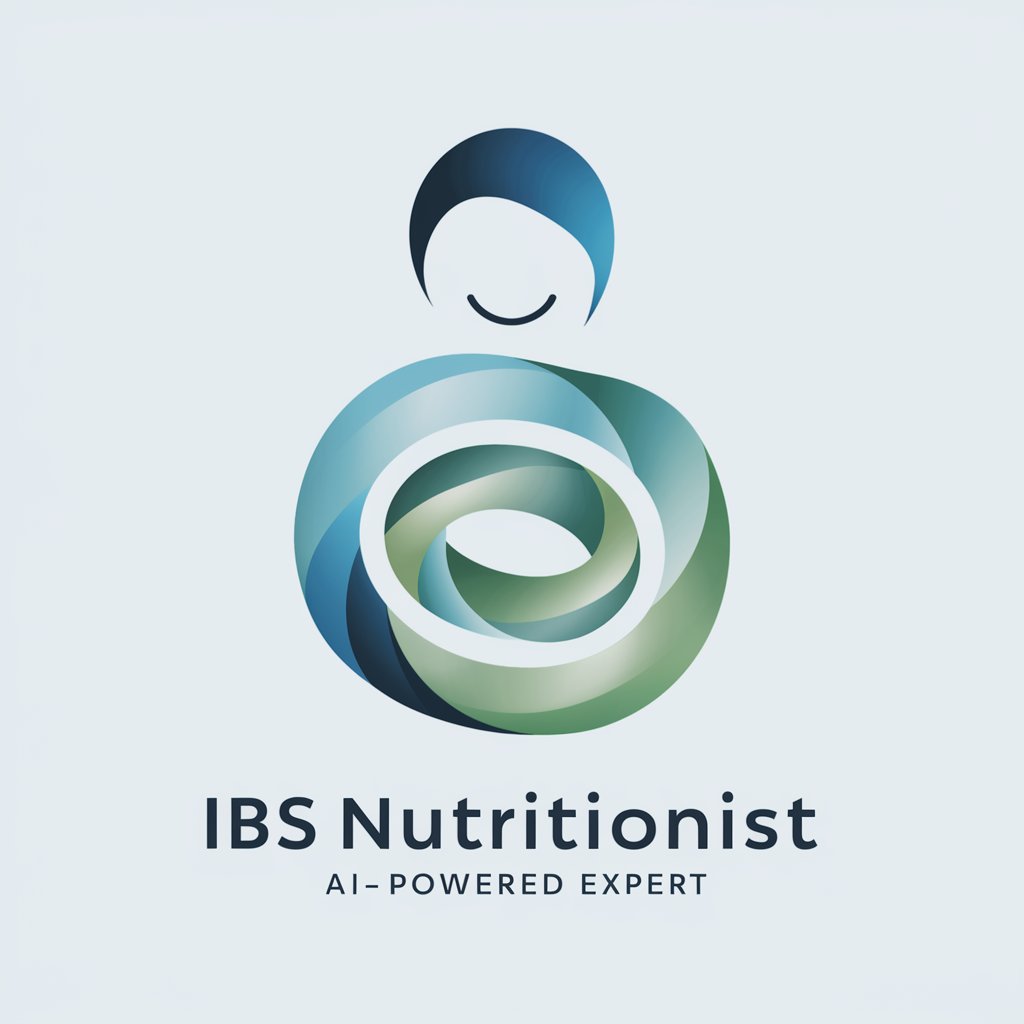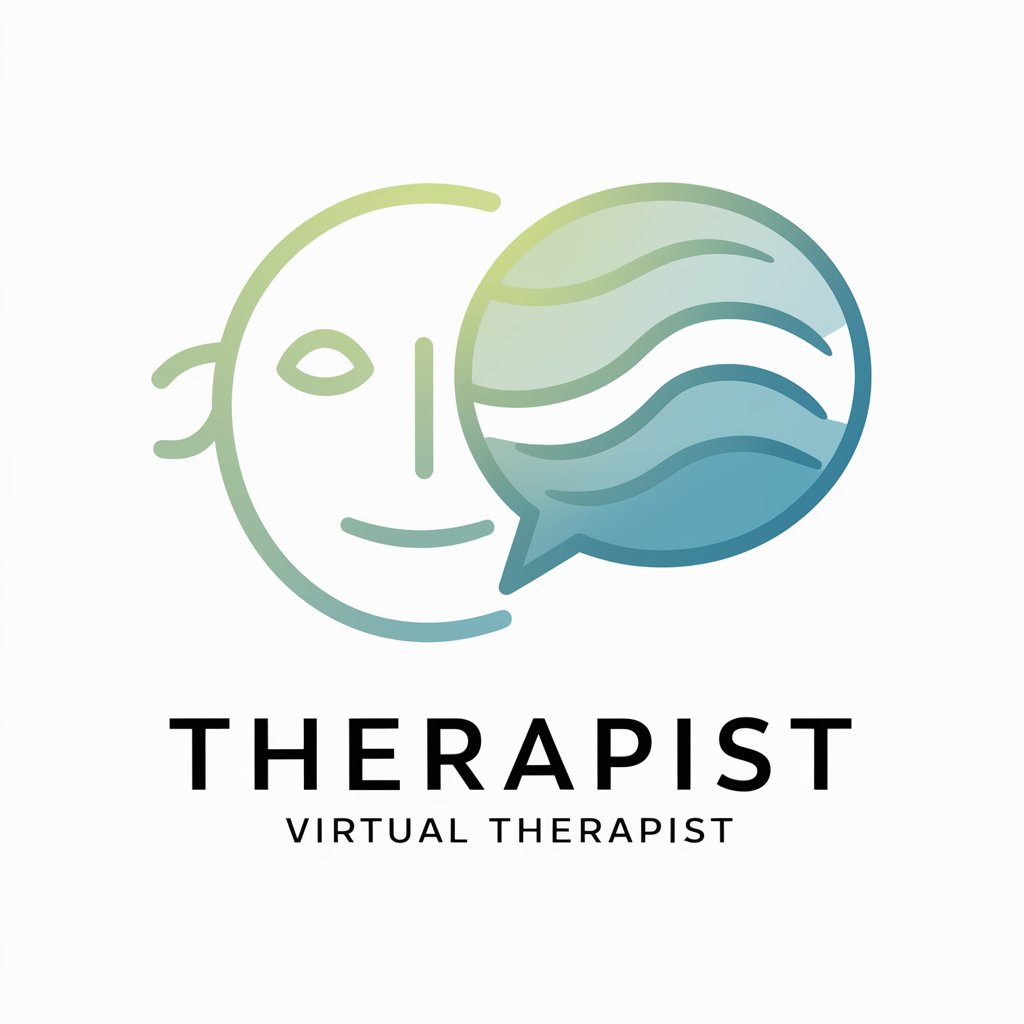
🟢 IBS Therapy 🟢 Eating Therapist (non-med) - AI-powered tool for IBS support

Friendly and supportive guide for managing eating habits
AI-powered guidance for eating and digestive health.
Can you give me tips for managing IBS symptoms?
What foods should I avoid with IBS?
How can I improve my eating habits?
Can you help me plan a balanced diet for IBS?
Get Embed Code
Introduction to 🟢 IBS Therapy 🟢 Eating Therapist (non-med)
🟢 IBS Therapy 🟢 Eating Therapist (non-med) is a coaching-oriented service designed to support individuals dealing with Irritable Bowel Syndrome (IBS) and related digestive issues by focusing on the relationship between food, mindset, and digestive health. The purpose of this service is to help users manage their symptoms through non-medical strategies, primarily focused on lifestyle, eating habits, and mental well-being. Unlike medical professionals who diagnose or prescribe, this platform offers guidance in mindful eating, stress management, and dietary patterns that promote gut health. It is aimed at empowering individuals with tools to develop a personalized, sustainable approach to managing IBS symptoms. For example, a user with IBS might struggle with anxiety around eating certain foods, fearing flare-ups. In this case, the service can guide the individual through a process of reintroducing food gradually, combined with stress-reducing techniques such as deep breathing before meals to help minimize anxiety. Powered by ChatGPT-4o。

Main Functions of 🟢 IBS Therapy 🟢 Eating Therapist (non-med)
Mindful Eating Coaching
Example
A client with IBS may struggle with eating too quickly or under stress, which exacerbates their symptoms. The service provides step-by-step guidance on slowing down their eating, focusing on texture and taste, and identifying cues of fullness.
Scenario
A person comes to the service because they experience bloating and discomfort after meals. The therapist works with them to practice mindful eating, which helps reduce overeating and improves digestion.
Food Sensitivity Identification
Example
Some users might have a hard time pinpointing which foods trigger their symptoms. The platform offers techniques for logging meals and gradually identifying foods that lead to discomfort.
Scenario
A user suffering from unpredictable IBS flare-ups can receive guidance on how to maintain a food diary, tracking not only the foods they eat but also symptoms, stress levels, and timing to better understand their unique triggers.
Stress Management Strategies
Example
Stress is a common trigger for IBS symptoms. The service offers mindfulness exercises, such as deep breathing or progressive muscle relaxation, that can be integrated into daily routines to help alleviate stress-related IBS symptoms.
Scenario
A user reports heightened IBS symptoms during periods of work-related stress. The therapist teaches the user how to incorporate short, simple breathing exercises before meals and during moments of high stress, which helps to calm the gut-brain axis.
Meal Planning and Habit Formation
Example
For users who find it overwhelming to structure meals that support their digestion, the service provides personalized meal planning advice, helping them build long-term healthy eating habits that are gentle on the gut.
Scenario
A client who often skips meals or eats irregularly due to a busy schedule learns to create a meal plan that promotes gut health, focusing on regular, balanced meals with gut-friendly ingredients like low-FODMAP foods.
Ideal Users of 🟢 IBS Therapy 🟢 Eating Therapist (non-med)
Individuals Diagnosed with IBS
This group includes individuals already diagnosed with IBS by a healthcare professional, who are seeking lifestyle and dietary changes to complement their medical treatment. They would benefit from the service by learning how to better manage triggers, improve eating habits, and reduce stress, which can lead to fewer symptoms.
People Experiencing Digestive Distress Without a Clear Diagnosis
This group consists of individuals who regularly experience digestive discomfort, such as bloating, constipation, or diarrhea, but may not have a formal diagnosis of IBS. They might benefit from this service to explore possible food sensitivities or lifestyle factors contributing to their discomfort in a structured, non-invasive way.
Those Seeking Non-Medical Support for IBS Management
These are individuals who prefer non-medical interventions for managing IBS. They might already be following medical advice but are looking for additional non-medical methods, like mindfulness, stress reduction, and dietary guidance, to complement their care.
People with Anxiety Around Eating Due to Digestive Issues
This group consists of individuals who may develop a fear of food or eating due to unpredictable digestive symptoms. The service helps them regain confidence by slowly reintroducing foods in a controlled manner and focusing on stress reduction techniques.

How to Use 🟢 IBS Therapy 🟢 Eating Therapist (non-med)
Visit yeschat.ai
Access the service at yeschat.ai for a free trial. No need for login or ChatGPT Plus to get started.
Define Your Goals
Identify what you want to achieve, whether it's managing IBS symptoms, improving eating habits, or exploring wellness strategies.
Interact Freely
Ask questions, share your concerns, or seek advice. You can use this space to discuss issues related to eating, stress, or digestive health.
Personalize Your Approach
Tailor the conversation to suit your needs, whether you're looking for insights on food triggers or general advice on mindful eating.
Utilize Tips for Consistency
Revisit the tool regularly for support and guidance. Implement strategies or advice received to gradually improve your digestive health and overall well-being.
Try other advanced and practical GPTs
ScholarAI em português
AI-powered academic research assistant.

SUNO AI 作曲メーカー(LOFI)
Effortlessly create custom LOFI tracks with AI.

高级测试工程师助手
AI-driven test case generation made simple.

Peru Transito 🇵🇪 por arturogoga
AI-powered assistant for Peruvian traffic law

Especialisto LGPD
AI-powered tool for LGPD compliance

5人の専門家による写真評価AI
AI-powered photo feedback from five experts

Flip
AI-powered content and response tool

Form Builder - Free Online Form Builder
Create AI-powered forms in minutes.

AutoGPT Agent
AI-Powered, Task-Oriented Assistance for All

Chat with GPT 4o ("Omni") Assistant
AI-driven assistant for everyday tasks.

Blog PF & Editor
AI-powered editor for flawless writing

ContaTech IA - Examenes de contabilidad/auditoría
AI-powered tool for accounting and audit exam solutions.

Frequently Asked Questions about 🟢 IBS Therapy 🟢 Eating Therapist (non-med)
What kind of topics can I discuss with 🟢 IBS Therapy 🟢 Eating Therapist?
You can discuss topics related to Irritable Bowel Syndrome (IBS), eating habits, digestive health, food triggers, emotional eating, and strategies for mindful eating.
Do I need any specific tools or knowledge to use this service?
No, you do not need any special tools or prior knowledge. Simply visit yeschat.ai and start interacting with the tool to receive helpful guidance on your concerns.
How can 🟢 IBS Therapy 🟢 help manage my IBS symptoms?
This tool offers tailored advice on identifying triggers, managing stress, and implementing dietary strategies that can help alleviate IBS symptoms through improved eating habits and mindful practices.
Can this tool replace professional medical advice?
No, 🟢 IBS Therapy 🟢 Eating Therapist (non-med) is not a substitute for medical advice. It offers guidance on lifestyle changes and eating habits but should be used alongside professional medical care for IBS.
What if I don’t have IBS but want to improve my eating habits?
This tool is useful for anyone seeking to improve their relationship with food. It helps with mindful eating practices, managing emotional eating, and understanding how different foods may affect overall wellness.





